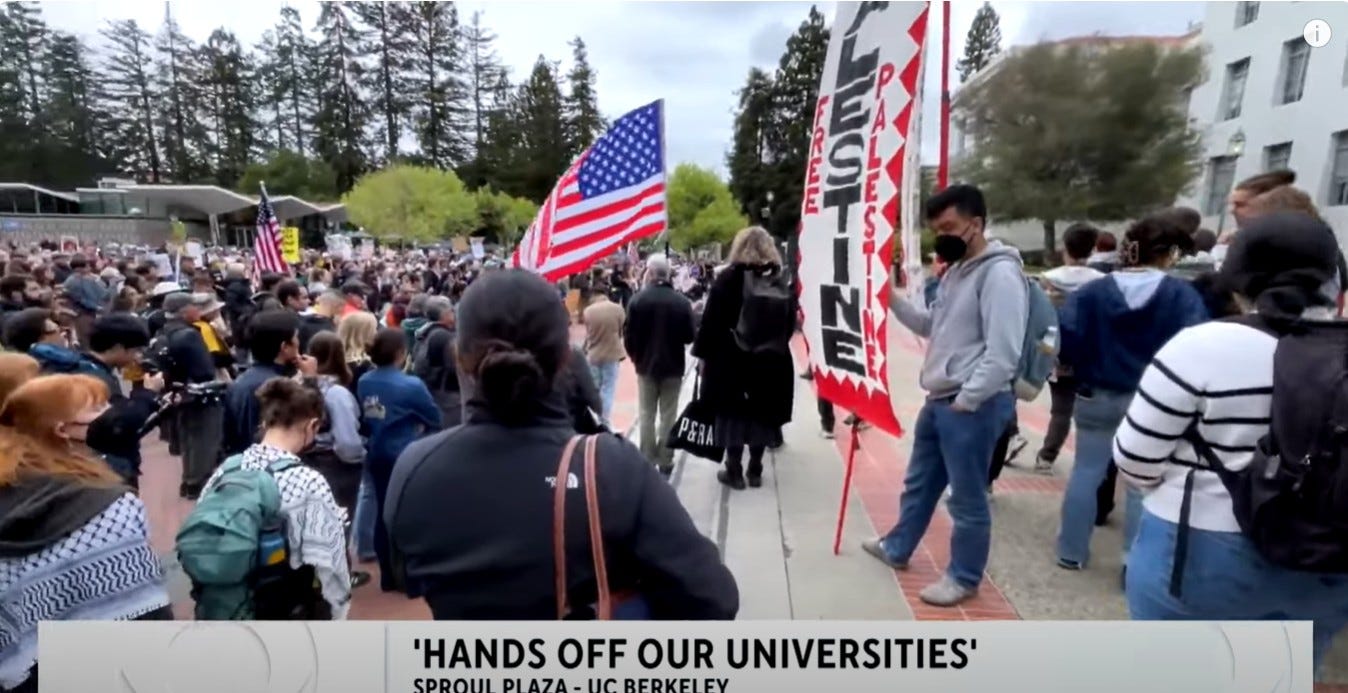
The rebellious response of Harvard President Alan Garber to the attack from the Trump administration has triggered a wave of unequivocal support across the academic community — and thereby once again exposed that its allegiance to Truth has been abandoned in favor of Values.
Universities have been deaf to the public, and the public is right to make them listen — even by threatening to cut federal funds. However preposterous and self-contradictory many demands of the new U.S. administration may be, the key requested changes are long overdue.
It is true that the so-called “holistic” approach to undergraduate admissions is based on subjective and inexplicable criteria — often yielding random or downright perverse results, where an obviously better prepared student is rejected in favor of a weaker one from the same high school. This is immoral, should be illegal, and is easy to fix. The “holistic review” must be replaced by transparent admission formulas based on objective and quantifiable test results, so that applicants know in advance whether they qualify — and can be sure that no one with lower academic credentials will be admitted ahead of them.
Thank God, U.S. campuses don’t appoint Vice Chancellors for MAGA Affairs — but they do appoint Vice Chancellors for Social Justice (under ever-shifting acronyms), backed by massive infrastructure at every level. The problem isn’t just that the ideology these offices promote is unpopular in the society as a whole, or inherently racist, or discredited by the 20th century’s bloody history (all of which may well be true). The problem is that even if it were popular, virtuous, and novel, institutionalizing any ideology is corrupting. It is incompatible with freedom and democracy, and characteristic of regimes like the DPRK or IRI. If we don’t want to be treated as religious entities (and those are not entitled to federal funding), we must dismantle the DEI bureaucracy completely.
It is true that student protests have disrupted the normal functioning of some universities. It is also true that by defending students’ right to protest, university administrations actually endorse mob culture — something anti-intellectual and contrary to the university’s mission. They need not take sides — in the Israeli-Palestinian conflict, to be explicit — but it is their obligation to discourage mob activity and redirect protest energy into moderated forums, where the opponents can educate each other, fact-check their claims, debate moral aspects of the problem, and brainstorm it for potential solutions. This is hard to organize, but neglecting to do so is not neutrality. It’s cowardice.
It is also true that some academic disciplines have drifted from research and education into political activism and indoctrination. (See, for example, the UC Ethnic Studies Faculty Council’s statement and the grassroots rebellion of Californians against the politicization of K–12 Ethnic Studies curricula.) This trend, which traces back to the “student revolution” of the 1960s and to the postmodernist idea that truth is subjective while reality is a social construct, has been reinforced across several academic generations. It may be very hard or even impossible to separate the wheat from the chaff now, but at the very least, it is necessary to acknowledge the problem.
As a matter of principle, the academic community is right to object to many of the US administration’s demands — but those objections remain unprincipled until the above fundamental problems are recognized and addressed.
Universities are absolutely right to reject the US administration’s blatant attempt at social engineering disguised as Viewpoint Diversity in Admission and Hiring. The kind of proposed “diversity” can only be achieved by abandoning meritocracy and enforcing ideological quotas. But to argue this point, shouldn’t one first reject the practice of social engineering for ethnic and gender diversity?
It is absurd to expect that, in the absence of ideological litmus tests, the proportion of atheists (or Republicans) among faculty would mirror the general population. But is it any more absurd than assuming that every demographic imbalance must be a result of discrimination?
It is understandable that Harvard, or any comparable institution, cannot accept the abusive micromanagement plan laid out in the infamous letter. But we have yet to hear a serious alternative proposal for how these schools plan to stop the continued large-scale indoctrination of our future leaders.
This is a critical moment — a chance for academia to begin repairing its severely damaged reputation by returning to facts and expertise (not values) as the way to distinguish truth from falsehood, by reaffirming first principles: fairness, objectivity, meritocracy — unclouded by Orwellian euphemisms or casuistic justifications of discriminatory practices.
It’s a shame this chance had to come as an ugly prompt from the Trump administration. Doing the right thing now will no doubt look like caving to threats of losing federal funding or tax-exempt status. Doing the right thing now may well invite more pressure. And if it does, universities must stand united in rejecting the unreasonable, undemocratic, and unconstitutional demands of the authoritarian bureaucracy.
But first, they need to do what they ought.





Turn their own reasoning (such as it is) against them. The presence of merely token conservatives in the faculty is ipso facto evidence of discrimination. They should be ashamed.
Funny how these institutions and vice-chancellors had nothing to say about the DEI-requirements mandated by the federal government.